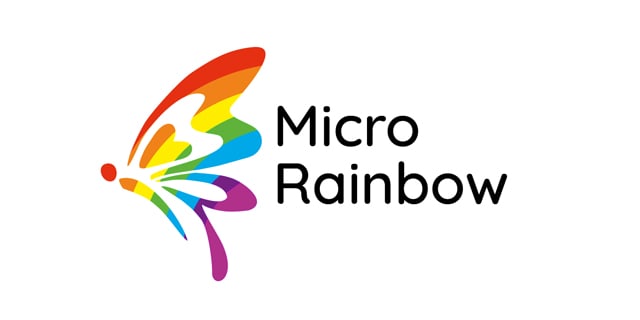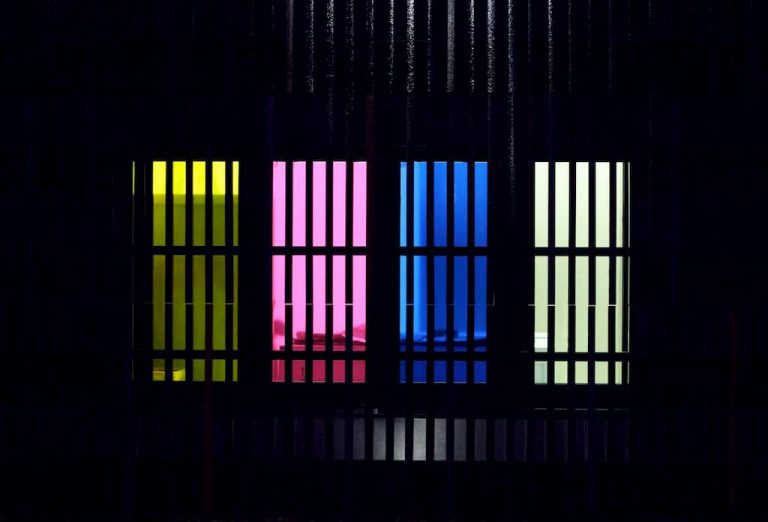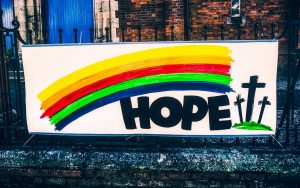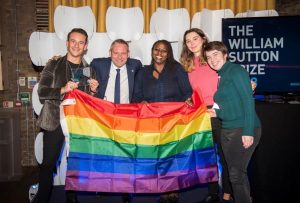Every year, Micro Rainbow receives several requests of help from LGBTI migrants who have been detained. Below we provide an example of a gay detainee from Bangladesh which shows the work of Micro Rainbow to ensure that LGBTI people are released from detention. We also explain why Micro Rainbow could be an alternative to detention for LGBTI migrants and how you can help to make this happen.
Chronology of events and actions
- Bail for Immigration Detainee (BID) contacted Micro Rainbow about a gay Bangladeshi national in Harmondsworth Immigration Removal Centre who may be eligible for Micro Rainbow housing and social inclusion support.
- Micro Rainbow received the referral and contact details for Arif (not his real name) and on the same day a risk assessment was carried out between a Micro Rainbow Outreach Officer and Arif. This risk assessment took place on the phone and lasted almost two hours.
- A day later the Micro Rainbow team reviewed Arif’s risk assessment and determined that he was eligible for Micro Rainbow housing and social inclusion support.
- A few days later, Micro Rainbow provided the details of the address Arif would be residing at and prepared a letter describing the support that he would receive from the organisation. BID lodged a bail application which was listed within a week.
- At the bail hearing the judge refused Arif’s request for bail. She was not satisfied with the evidence provided that the service user would not have absconded.
- The next day BID made a further bail application. Micro Rainbow provided a further letter confirming that Arif could be accommodated in housing in London and more details about the kind of activities that he would benefit from as part of Micro Rainbow. Micro Rainbow staff were also available at the hearing to answer any questions raised by the Immigration Judge about the support that Arif would be provided.
- Arif was granted bail and moved to Micro Rainbow housing the same day.
- Since the day of release, Arif has been residing in Micro Rainbow accommodation in London. Micro Rainbow’s Outreach Officers have had regular meetings with him to help with his NASS application and to discuss any support needs he might have. Micro Rainbow’s Project Manager is also available to assist him with emergencies. Arif has attended Micro Rainbow’s social inclusion events where he has connected with many LGBTI asylum seekers and refugees. He has also attended Pride events in London organised by Micro Rainbow. He has built new connections and safety nets. Arif did not abscond.
- Micro Rainbow’s staff have been dedicating time to this work using the free resources of the organisation, which is not sustainable.
- For several months, the Micro Rainbow International Foundation which runs an emergency support programme has provided Arif with financial support for food and travel as he has not been in receipt of any financial support (NASS).
- Micro Rainbow’s team is working hard to ensure that Arif is granted NASS as soon as possible so that he can access housing and financial support.
Micro Rainbow as an Alternative to Detention
There are many people who, like Arif, are at risk of violence and abuse in detention centres because of their sexuality, gender identity or expression or intersex status.
Micro Rainbow believes that its holistic approach to integration which includes housing, social inclusion and moving-on support could be an alternative to detention. We believe that using Micro Rainbow’s approach rather than detention has several benefits, including:
- LGBTI migrants are able to benefit from a supportive environment and specialised support at a critical point in their lives, when they are fighting for their right to live freely in the UK. They will have better mental/physical health and be free from violence from other detainees. Thanks to the support of Micro Rainbow, they will also be able to properly prepare their case for asylum.
- Micro Rainbow is able to further its mission by supporting the most vulnerable LGBTI people in society, preventing homelessness and violence and ensuring their integration into British society.
- The Home Office is able to build on a partnership with civil society organisations which not only prevents violence and abuse of LGBTI people in detention but also saves the taxpayers money[1].
How you can help
You can help by becoming an Ally. This means that you commit to making a regular donation to Micro Rainbow to pay for bills, transport and subsistence for people who come out of detention. Your donation will be ring-fenced and will be spent only in relation to Micro Rainbow’s detention work. It costs £30 per day to provide an LGBTI migrant coming out of detention with housing, subsistence and support.
[1] According to Home Office figures released in February 2018, it costs £85.97 per day to keep an individual in detention. During the period 2016-2017, as stated in the Home Office Annual Report, detention cost the government £118 million. These costs don’t include the administrative costs, the cost of opposing bail and other legal costs which could amount to many thousands of pounds per detainee, nor do they include the costs the Home Office has paid out in compensation for unlawful detention (£1.8 million in the period 2016-2017). Information accessed at www.biduk.org on 24/07/2019.







